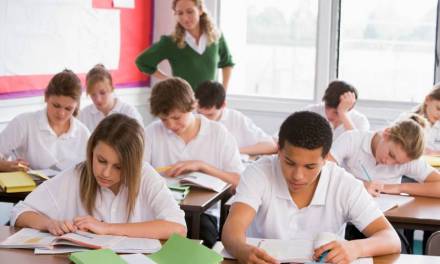Student behaviour can be difficult to control at times especially around exam season due to a decrease in attentiveness and focus from several factors. Here are three tips that can help get students back on track.
Several ideas can have a positive impact on student behaviour, but these tips can help schools in the long-term with their relationship with their students.
1. Engage with your students with a positive reinforcement mindset
Imposing a positive and supportive attitude towards your students can significantly help them to progress. A positive and negative reinforcement study on behaviour by Stephen Bernier highlighted:
“A Reinforcement Contingency Condition increased behaviour to an average of 93% of the sessions.”
Expanding on this, providing positive reinforcement for students’ behaviour can build rapport and trustworthiness between teacher and student in the long term.
Students can be challenging to manage if they are misbehaving. However, by providing a positive experience in the classroom it can engage students to be more inclined to complete their work.
2. Implement strategies that can improve students’ enthusiasm and behaviour
Not every student will be motivated to participate in the classroom so it is imperative to find strategies that will benefit the class as a whole.
“Effective classroom management can reduce challenging behaviour, pupil disengagement, bullying and aggression. Improving classroom management usually involves intensive training with teachers reflecting on their classroom management, trying a new approach and reviewing their progress over time.”
Strategies such as organising active tasks for students will keep them interested in their learning. Alternatively, teachers could set an example and demonstrate what is expected within the classroom in terms of being fair and respectful. This can also reiterate the positive reinforcement benefits when they operate together.
3. Be calm, respectful and listen when dealing with behaviour incidents
Ultimately, student behaviour within a school can lead to several incidents that may require attention. What is important to remember, is that having a calm and steady approach and attentively listening to your students can help improve behaviour as respect is formed.
“The ‘listening’ component of communication should not be overlooked – over 60% of all misunderstandings result from poor listening.”
It can be helpful to speak to students privately, one-to-one in a calming manner, and offer them alternatives or opportunities to fix the problem in a way that they may deem appropriate.
Students can respond better to teachers with a calm and respectful tone rather than a harsh teacher who yells.
Every student is different and every situation cannot be automatically fixed and they may find mainstream education unbearable.
That’s why it is good for schools to explore options that will help the students who need support and subsequently it can help budgets and workloads.
What alternative provision do you have in place? Would some of your students who have challenging behaviour benefit from being enrolled on an online alternative provision?
EDClass can be your alternative provision and help behaviour repair
EDClass can aid behaviour repair and help students successfully reintegrate back into mainstream education. Students at risk of exclusion or who are in isolation can even learn off-site from a remote location and claim an attendance code.
With over 17,000 lessons and 2,000 video lessons available, teacher workload can be significantly reduced. Behaviour repair lessons are also incorporated to improve students’ overall behaviour.
EDClass has sophisticated safeguarding measures in place so students can learn in a safe and comfortable learning environment.
If you would like some more information on how EDClass can support your behavioural challenges in school then call the team on 01909 568 338, send an email to mail@edclass.com or book a free online demonstration here.








